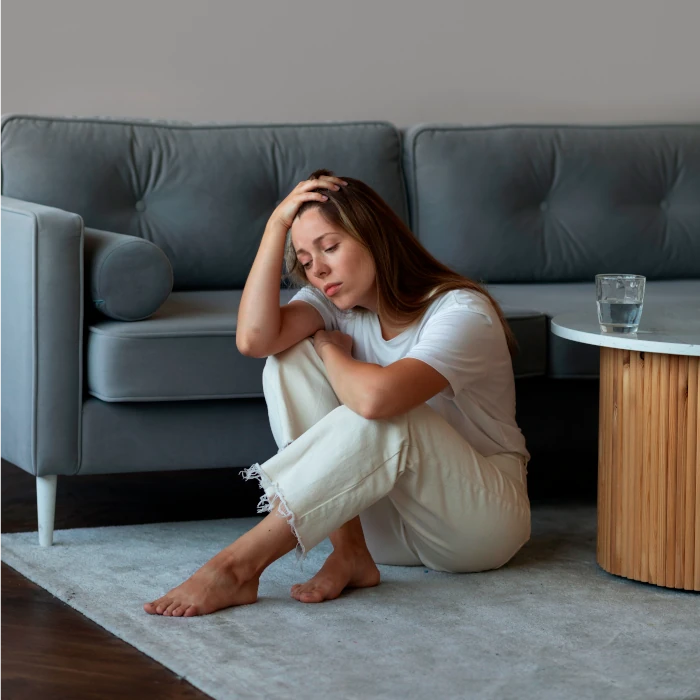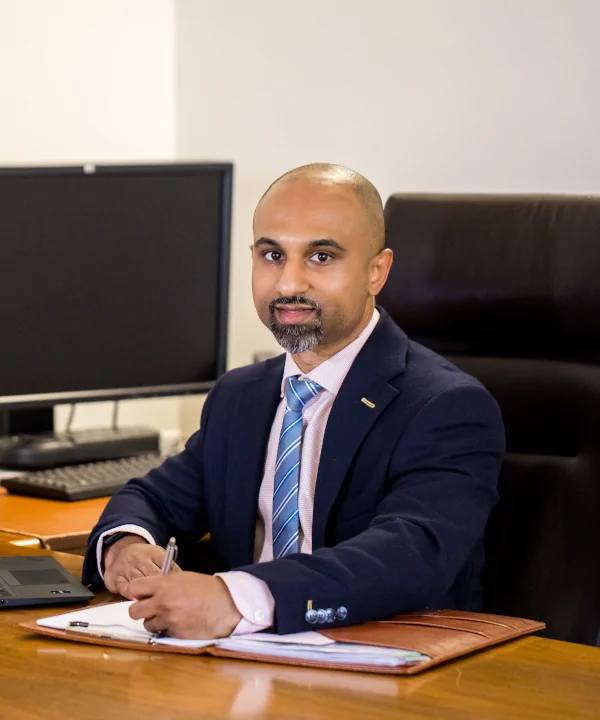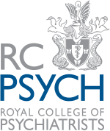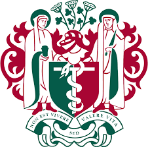OCD Psychiatrist
Are you feeling overwhelmed and exhausted by thoughts you can’t control? Do certain routines and rituals feel like the only way you can ease your anxiety, if only for a moment? If Obsessive Compulsive Disorder (OCD) is making your life unbearable, you are not alone.

OCD treatment from a leading specialist
Obsessive Compulsive Disorder (OCD) is a serious and often distressing mental health condition that causes someone to enter a cycle of unwanted, intrusive thoughts known as obsessions, and repetitive behaviours or mental acts known as compulsions. Compulsions are performed to relieve anxiety created by obsessional thoughts.
1.3% of adults in the UK are affected by OCD. OCD is prevalent in 2.7% of children and adolescents in the UK. The worldwide prevalence of OCD in the general population is 2%. OCD is considered by the World Health Organisation to be the tenth leading cause of disability worldwide. Women have a greater lifetime risk of developing OCD than men. Although many people are affected by OCD, it is important to remember that this condition is treatable.

Signs you could be struggling with OCD
The first half of OCD - Obsessions
Obsessions are unwanted, intrusive thoughts, images, or urges that repeatedly enter your mind, and cause intense anxiety or distress. These thoughts often feel uncontrollable, and no matter how much you try to ignore or push them away, they keep coming back. People with OCD don’t want to have these thoughts—they’re not enjoyable or welcomed. In fact, they often go completely against a person’s values or intentions, which can make them feel confusing, frightened, or even ashamed. There are many different types of obsessions including:
A fear of contamination
A persistent fear about germs, specific diseases, body fluids or dirt. This can include a preoccupation with bacterial infections, or viruses such as COVID-19, herpes or HIV. Some people can be concerned about body fluids including blood, urine or faeces. Others may be fearful about environmental contamination.
Violent or sexual obsessions
A fear about acting on a thought or impulse of harming yourself, or others including those close to you. Some people experience repeated obsessions about violent images in their mind.
Others can experience repeated unwanted repetitive thoughts relating to sex-related impulses, or fears about sexually aggressive behaviour towards others. Some people experience sex related thoughts about children, relatives or people they know. Which can be highly distressing.
Perfectionism
Preoccupation or excessive concern with performing tasks in the “correct” way, or in a way that is perceived as “perfect”. This can include arranging things in a way so that they are neatly aligned, a concern with things being “even”, or an excessive fear about making mistakes.
Responsibility related obsessions
An intense fear about harming others because of a mistake. This can be a general fear about being responsible for something terrible happening to others including people you know. Other fears can be more specific, for example an excessive concern about not locking the door and being responsible for a burglary, or forgetting to turn the cooker off and causing a fire.
Religious obsessions
An uncomfortable fear about morality, doing something wrong, or acting or thinking in a way that could be blasphemous, incompatible with your religion, or offensive towards God.
The second half of OCD - Complusion
Compulsions or repetitive behaviours, actions or mental rituals that someone with OCD feels driven to perform in response to an obsession. Often the compulsion is performed to “cancel out” or neutralise the obsession. Compulsions are not enjoyable or pleasurable, they are performed to relieve the intense anxiety and fear caused by obsessive thoughts, or to prevent something bad from happening. There are many types of compulsions, including:
Excessive cleaning or washing
Repeatedly washing hands, sometimes in a particular way. Some people may feel compelled to shower excessively or brush their teeth repeatedly. Others may clean household items or surfaces several times in response to obsessions related to contamination.
Checking
A fear about acting on a thought or impulse of harming yourself, or others including those close to you. Some people experience repeated obsessions about violent images in their mind.
This can include repeatedly checking that lights have been switched off, doors have been locked and appliances or machinery have been safely turned off.
Repeating
Some people will repeat certain body movements such as blinking a certain number of times, or tapping. Others may need to stand up and sit down a number of times, or pass through a doorway repeatedly. It is quite common for some people to perform activities in “multiples”, such as completing a task 5 times because this is considered a “safe” number.
Mental rituals
Mental rituals include silently saying certain words in order to “undo” something. For example, saying a “good” word in order to cancel out a “bad” thought. Other people may find themselves counting up to a “good” number while performing a task, or praying repeatedly to prevent harm to themselves or loved ones.
Reassurance seeking
Frequently and repeatedly asking others for reassurance or confirmation that everything is okay and nothing bad is going to happen.
Treatment for OCD with Dr. Dipesh Mistry, OCD specialist
Dr Mistry has expertise in treating multiple mental health conditions, including obsessive-compulsive disorder. OCD can seriously disrupt sleep, and poor sleep can, in turn, worsen OCD symptoms.
Dr Mistry is uniquely qualified to treat both OCD and sleep disturbances that are associated with OCD, including insomnia treatment and delayed sleep-wake phase disorder (DSWPD).

Assessment with Dr Mistry
Dr Mistry can offer you an assessment of your obsessive-compulsive disorder symptoms in a relaxed setting at one of his central London clinics. You can look forward to a friendly, confidential conversation where Dr Mistry will ask questions to gently explore the nature and severity of your OCD symptoms, as well as considering how this may be impacting on your day-to-day functioning, your sleep and your quality of life.
Dr Mistry’s approach to OCD therapy
Psychological therapy: The most effective treatment for OCD is a specific form of cognitive behavioural therapy (CBT) known as Exposure and Response Prevention (ERP). Dr Mistry can connect you with experienced CBT therapists to begin your journey towards recovering from OCD.
Medication: Research shows that Serotonin Reuptake Inhibitors (SSRIs) and a tricyclic antidepressant, Clomipramine can be effective with reducing symptoms of OCD. People taking antidepressants to treat OCD needs to take them at higher doses, and for longer periods for them to be effective. Dr Mistry can help you navigate your options for medications to treat your OCD.
Sleep management: Take advantage of Dr Mistry’s unique experience in the interface between mental health and sleep, to ensure your sleep is fully optimised as part of your overall OCD treatment plan.
Close follow-up: OCD can be a tricky condition to treat. That’s why, once your OCD treatment plan is in motion, Dr Mistry will provide regular follow-up and ongoing support to ensure you stay on track to overcome your OCD symptoms.
The links between obsessive-compulsive disorder and sleep
People with obsessive-compulsive disorder are at higher risk of developing sleep disorders because of the interference that persistent obsessions and compulsions may have on their sleep.
Sleep loss impairs areas of the brain involved in decision-making, emotion regulation, and flexibility – all essential for managing compulsive urges. Sleep-deprived individuals may find it harder to resist rituals or tolerate uncertainty. Recognising and addressing sleep problems is a crucial part of comprehensive OCD care.
OCD and sleep statistics
OCD and insomnia: People with OCD are 5 times more likely to develop insomnia, with one study finding that 42.2% of adults with OCD experienced insomnia.
OCD and Delayed Sleep-Wake Phase Disorder (DSWPD): A study involving 24 adults with severe OCD found that 42% met the criteria for DSWPD, whereas none in the control group did. This indicates a strong association between OCD and delayed sleep patterns. There is accumulating evidence linking delayed circadian rhythms to OCD.
The vicious cycle of obsessive-compulsive disorder and sleep disturbance
Preoccupation with obsessions, and carrying out compulsions can persist into the evening and nighttime, which can interfere with sleep.
Obsessions and intrusive thoughts have been strongly linked with insomnia. OCD has been linked to sleep disturbance, and poor sleep quality is associated with increased OCD symptom severity, especially obsessions.
Insomnia can:
- Heighten anxiety and stress levels
- Reduce impulse control
- Increase vulnerability to intrusive thoughts
- Make it harder to resist compulsive behaviours
Adults with obsessive-compulsive disorder have been found to have a delayed onset of melatonin secretion, which is an indicator for a delayed circadian rhythm. Later timing of sleep has been identified as a predictor of non-response to exposure and response prevention (ERP) treatment for OCD. Targeting sleep, and in particular circadian rhythms could improve the effectiveness of OCD treatment plans.
What does this mean for me if I have obsessive compulsive disorder?
There is a case to argue in favour for people with obsessive-compulsive disorder being screened for sleep related difficulties, and signposted towards a sleep specialist as part of their overall treatment plan.
You don’t have to put up with endless obsessions, or inconvenient compulsions. Reach out to Dr Mistry and take the first step towards overcoming your OCD.
Why choose Dr Mistry?
Sensitive approach: Dr Mistry understands that it can be difficult, and sometimes embarrassing to discuss obsessive thoughts and talk about your compulsions. Dr Mistry offers a friendly, relaxed and non-judgemental environment for you to discuss your concerns.
Better sleep: Insomnia doesn’t just make you tired, it can make OCD symptoms worse and harder to treat. Dr Mistry can consider your sleep quality as part of your overall treatment plan to help you secure a lasting recovery from OCD.
Convenience and flexibility: Dr Mistry offers in person or virtual consultations, so it is easier to fit treatment into your life so you can focus on recovering without any added stress.







